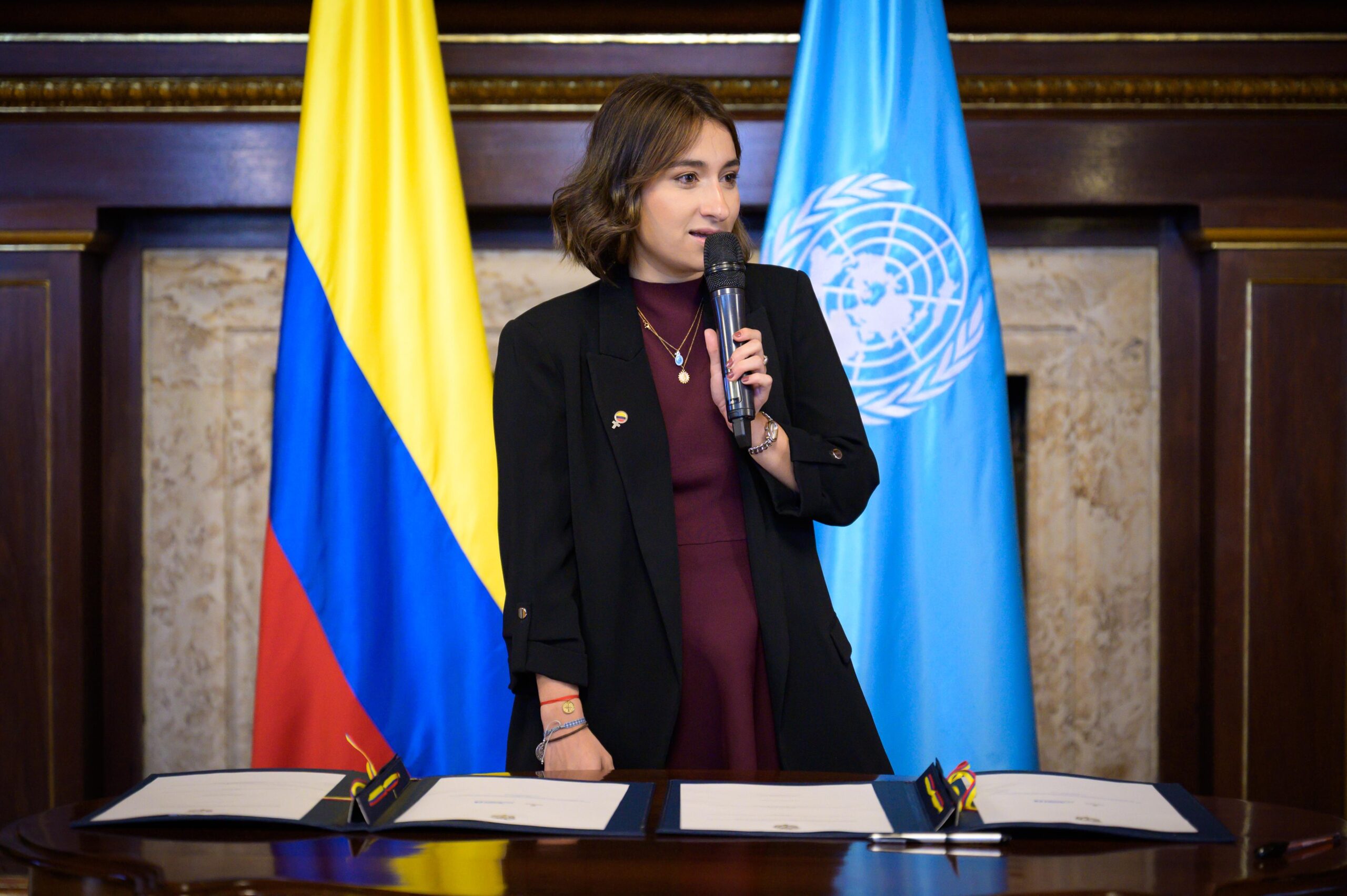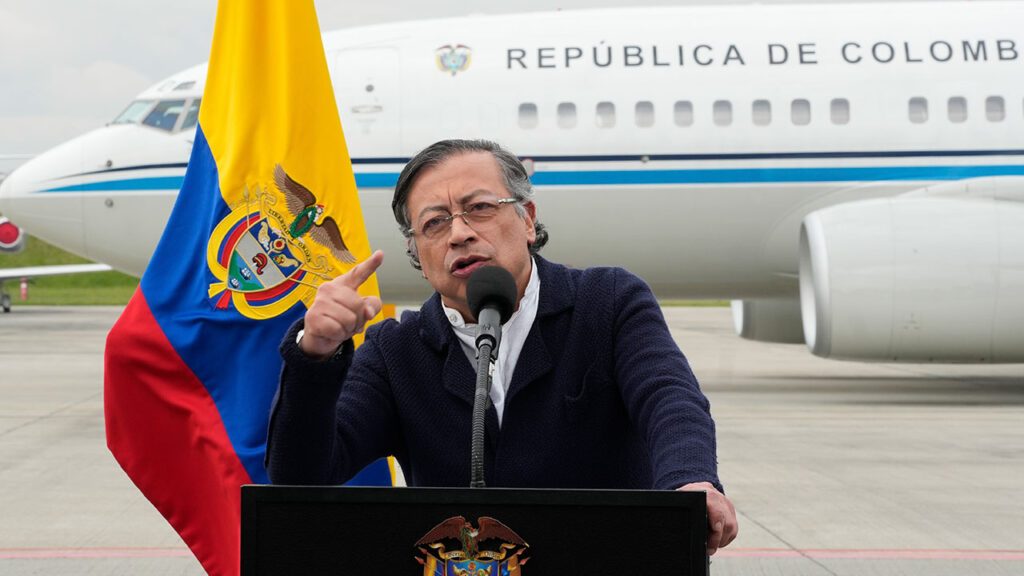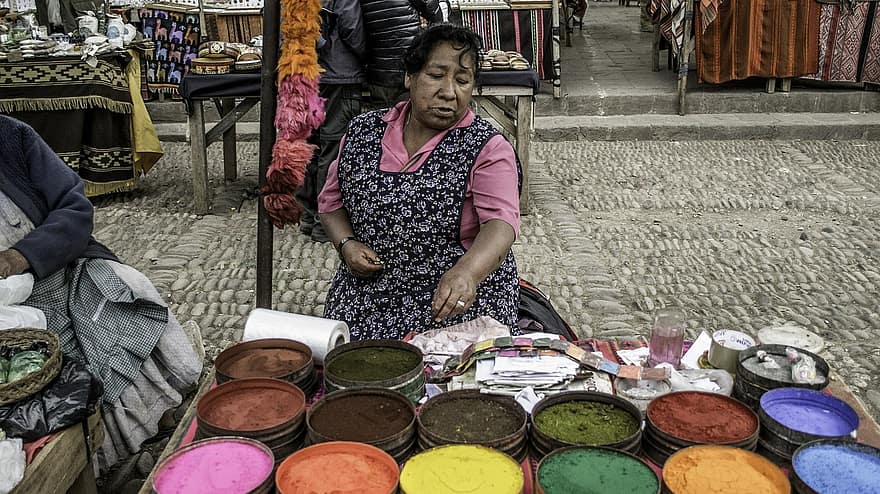Medellín, Colombia – On the eve of the International Day of Women in Diplomacy, Colombian Foreign Minister Laura Sarabia signed a decree confirming Colombia as the eighth country in the world with an explicit feminist foreign policy (Política Exterior Feminista– PEF).
“This is another milestone, but the most important thing is that this doesn’t just remain a signature, a piece of paper, or just another commitment made among women. We need to move to action — to consolidate mechanisms for participation,” Sarabia noted.
“I would like to see many more women ministers, many more young women setting the tone, shaping the direction of foreign policy,” the minister added.
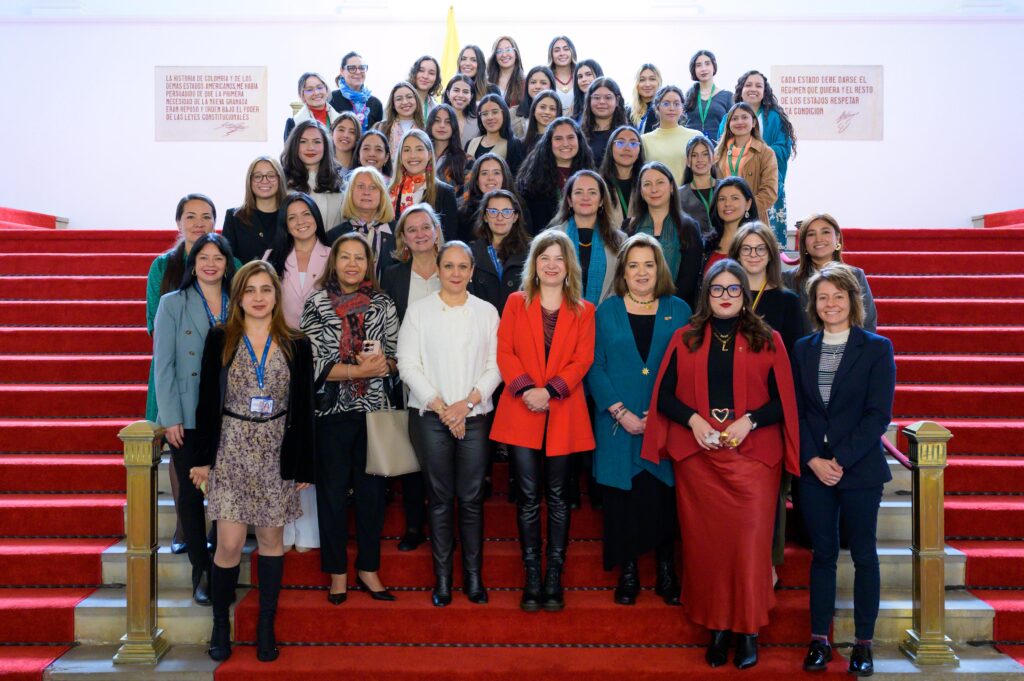
The proposal of a Colombian feminist foreign policy was made public in March 2024 during a United Nations Commission on the Status of Women session, and later reaffirmed in October 2024 during the COP16 biodiversity conference held in Cali, Colombia’s third-largest city.
Advertised as a “participative, pacifist and intersectional” policy, the decree has the purpose of promoting and guaranteeing the rights of women and members of LGBTQIA+ communities through mechanisms of active participation in foreign policy settings.
During last year’s COP, however, the Colombian delegation emphasized PEF’s environmental considerations, which include addressing the differentiated impact of climate change on women, promoting women’s participation in environmental policymaking, and encouraging women’s involvement in the sustainable management of natural resources and conservation efforts.
Read more: Conservation funds flop, Indigenous rights inch forward: key outcomes of COP16 explained
The new decree will guide institutional transformations led by the Ministry of Foreign Relations and other actors representing Colombia abroad. In 2025, these efforts in strengthening institutional and diplomatic frameworks are to:
- Address gender issues at the international level via policies that protect and guarantee women’s rights;
- Spearhead a network of cooperation and solidarity between countries and organizations committed to gender equality;
- Foster public awareness and education on gender issues;
- Promote the active and meaningful participation of women and LGBTQIA+ individuals in international decision-making processes;
- Ensure equitable representation in multilateral forums and organizations, as well as equal access to leadership and empowerment opportunities.

Image Source: UN Women
The policy, however, is also to guide the everyday inner workings of diplomatic organizations.
In terms of migration, for instance, the new decree mandates that Colombian representatives work explicitly towards the dignified treatment of women and girl migrants. And in international trade, Colombia is now to promote the elimination of barriers for women entrepreneurs while encouraging their participation in global value chains and key economic sectors.
One of eight and the third in Latin America
The first country in the world to adopt a feminist foreign policy was Sweden in 2014, and while there is no agreed upon definition of what it actually constitutes, many countries have embraced this banner, according to UN Women.
The ever-growing list also includes countries like Canada, France, Chile and Mexico, which have responded to global crises and setbacks in fundamental rights with feminist foreign policies, according to Bibiana Aido Almagro, UN Women representative in Colombia.
“In 2025, a year marked by crucial commemorations for women’s rights, feminist foreign policies are not just another branch of international relations, but rather a comprehensive approach to global politics that can safeguard decades of progress, drive innovative responses to crises, and help build a more just future,” Aido Almagro noted in a June 24 opinion article published by Colombia’s Gender Roundtable for International Cooperation.
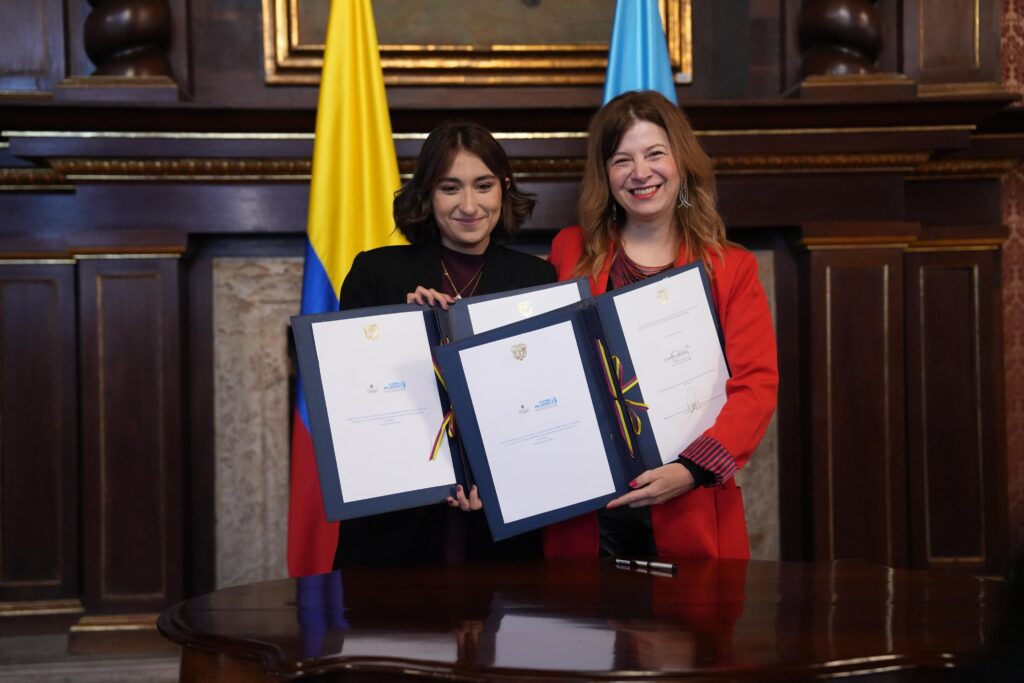
Image Source: ONU Mujeres Colombia via X.
And while many feminist foreign policies overlap with other long-standing commitments regarding women, peace, security or gender equality, they can provide a unifying political framework by which to guide both internal and foreign policies.
The other two Latin American countries which have adopted and maintained such measures- Mexico and Chile- have done so with different pillars to Colombia.
For one, Mexico became the first country in the global south to adopt a feminist foreign policy in January 2020. In this instance, the policy is guided by workplace gender parity, institutional improvement for gender equality, and the complete eradication of gender-based violence, among others.
However, according to the Mexico Peace Index 2025 report by the Institute for Economics and Peace’s Vision of Humanity platform, machismo, impunity and socio-cultural norms that perpetuate discrimination against women are deeply rooted in the country. With this, the prevalence of sexual assault and family violence against women has more than doubled in the past decade, and as per UN Women data, an average of 9 to 10 women are killed every day.

Image Source: Marcela Erosa via UN Women (Creative Commons Licenses)
Otherwise, the 2023 Chilean policy prioritizes the strengthening of democracy and human rights, the elimination of gender-based violence, greater women and minorities representation in public spheres, and the effective participation of women and girls in scientific and diplomatic work, among others.
In contrast, Argentina appointed a Special Representative for Feminist Policy in December 2022, but the role was quickly dissolved by December 2023 under the leadership of current President Javier Milei. In its decision, Argentina also substituted the Ministry of Women, Gender and Diversity for the Secretariat of Protection against Gendered Violence, under the Ministry of Human Capital.
Controversies
According to a King’s College London scholar, feminist foreign policies are treacherous because they allow the imposition of Western values on developing nations and the maintenance of global hierarchies.
A 2024 Georgetown University study, however, found that these measures actually promote the “inter-state diffusion of feminist ideas and countries’ domestic political forces result in gender-attentive transitional justice.” Their emergence in developing countries, in fact, emphasizes their importance across the geopolitical spectrum, for which feminist foreign policies must be viewed as expressions of commitment to gender equality.
In Colombia, the recent PEF decree must be viewed as an advancement in terms of strengthening, guaranteeing and promoting the rights of women and diverse populations alike, Universidad Nacional researcher Melissa Vallejo Carrillo notes.
However, Vallejo Carillo also warns that, in order for PEF to be effective, it must be continuously promoted both by the current government and those to come.
Featured image credit:
Image: Foreign Minister Laura Sarabia
Author: Cancillería Colombia
Source: Cancillería Colombia via X


